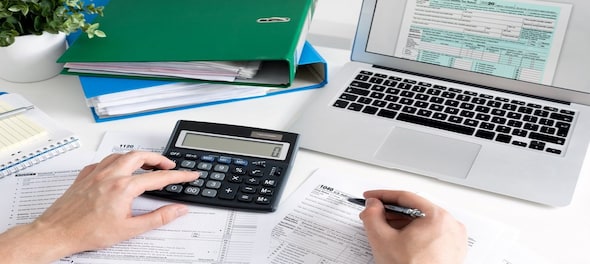
Live TV
Advance tax payment FAQ: Fourth instalment deadline on March 15, eligibility, more
What is exactly this advance tax and how much taxpayers are required to pay?
Advance tax refers to the amount paid within the same financial year in which the income is earned.
This payment is divided into four instalments.
By June 15, 15% of the total tax liability must be paid; by September 14, it increases to 45%, including the June installment.
December 15 sees a 75% liability, encompassing payments from June and September.
Finally, by March 15, the entire 100% tax must be settled, as per the income tax law.
What is the eligibility criteria for advance tax payment?
Any assessee, including salaried employees, with a tax liability of ₹10,000 or more, after accounting for tax deducted/collected at source, is obligated to pay advance tax.
Individuals with income sources beyond salary, such as rent, capital gains, fixed deposits, lottery winnings, etc., are also required to make advance tax payments.
Who are exempted from paying advance tax?
Resident senior citizens (aged 60 or above) without income from business or profession are exempt from paying advance tax.
Salaried individuals with no income other than their salary, as tax is deducted by employers, are also exempt from advance tax instalment payments.
Any person opting for a presumptive taxation scheme (except Section 44AE) is not required to pay advance tax in four instalments but can pay the whole amount of advance tax on or before March 15 of the financial year.
How can taxpayers pay advance tax?
E-payment is mandatory for all corporates and assesses whose accounts require auditing under Section 44AB of the Income Tax Act, 1961.
E-payment is recommended for other taxpayers as well, ensuring accurate crediting of payments.
What happens if taxpayers miss paying advance tax?
Any shortfall or default in paying advance tax instalments incurs interest burdens.
Section 234C imposes a 1% interest on the shortfall in each monthly instalment.
A margin of up to 10% is allowed on the total tax; falling below this threshold triggers Section 234B, requiring the taxpayer to pay 1% interest for each month of delay.
This means if taxpayers pay less than 90% of the assessed tax within the deadline, then section 234B requires the taxpayer to pay 1% interest for each month in the assessment year when the shortfall and delay continue.
Notably, part of a month is also counted as a full month for interest calculation.



